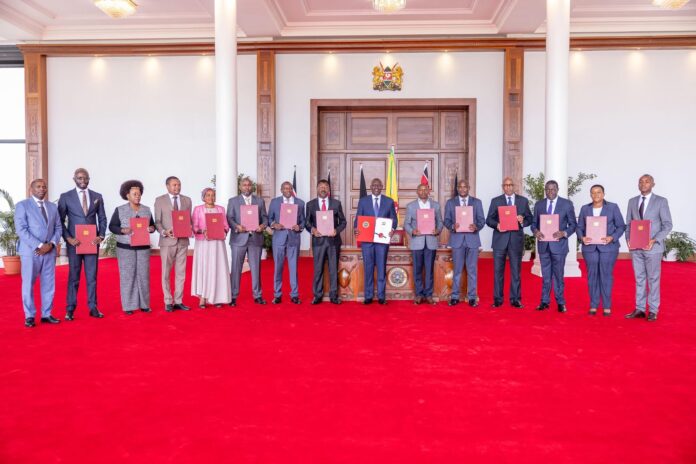President William Ruto has officially signed the Finance Bill 2025 into law during a ceremony held at State House Nairobi, ushering in sweeping tax reforms and budget allocations aimed at steering Kenya towards innovation-led economic growth.
In addition to the Finance Act, the Appropriations Bill and Supplementary Appropriation Bill were also assented to, effectively authorising the release of Sh1.88 trillion from the Consolidated Fund for the 2025/26 financial year.
Among key provisions in the Finance Act 2025 is the automatic application of tax exemptions and deductions for employees, removing the need for individual filing. The subsistence allowance threshold has been raised fivefold—from Sh2,000 to Sh10,000 daily.
The Act also repeals the Digital Assets Tax, replacing it with a 5% excise duty on transaction fees charged by virtual asset service providers, signaling a shift towards more progressive digital taxation.
To attract major investments, the Capital Gains Tax has been cut from 15% to 5% for projects certified under the Nairobi International Financial Centre.
Manufacturers and farmers will benefit from new tax exemptions on raw materials, including mosquito repellent, tea, and coffee packaging.
Other changes include new excise duties on betting, gaming, and digital services, and relaxed compliance rules for small-scale distillers.
The Appropriations Act allocates Sh47.6 billion to agriculture, Sh133.4 billion to health, Sh658.4 billion to education, and Sh217.3 billion to infrastructure, with an additional Sh62.8 billion earmarked for clean energy and rural electrification.
President Ruto hailed the legislative milestone as “a win for fiscal responsibility and economic transformation,” saying the new laws would boost productivity, social welfare, and investor confidence.
The government will also draw Sh671.99 billion in Appropriations in Aid from internally generated revenue to support ministries and state agencies.



















